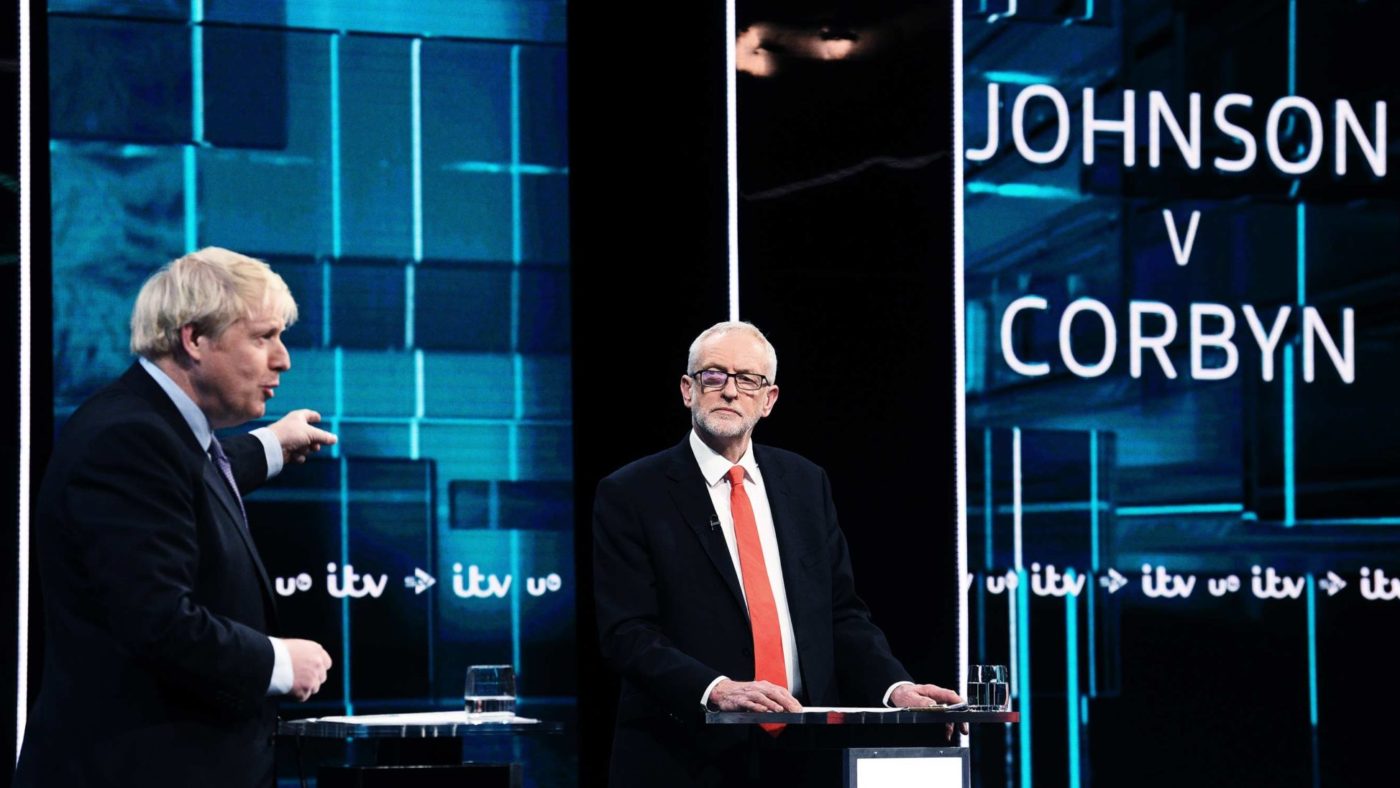In the end it was not so much a debate as a series of slogans careening off the walls of the ITV Studio. Boris Johnson and Jeremy Corbyn traded barbs, Christmas present suggestions and even a relatively cordial mid-joust handshake, but the general consensus is no one came out on top.
A YouGov poll in the immediate aftermath gave the PM a narrow 51-49 win over his opposite number. Spin that how you like: it could be bad for the Tories because Mr Johnson is usually far further ahead than this when it comes to personal ratings. Equally, some might argue, this was a chance for Corbyn to inflict a blow in the race and he failed to do so. On those terms, it’s Johnson who will have come away feeling better about his night’s work.
If anyone was the loser, though, it was the people sat at home having to watch this pastiche of a democratic exercise. It’s not atypical to see politicians circling around questions to get to their preferred talking points, but both men did so with such unerring regularity that it made the idea of this being some kind of interrogation laughable. ITV should also have a serious word with themselves about the format, which gave neither man anything like enough time to make their points before host Julie Etchingham leapt in.
For an example of how political debate can be done, have a look at this from 1975 between Tony Benn and Roy Jenkins debating the merits of British membership of the EEC. The lack of a studio audience, in particular, lends things a calmness that makes the whole spectacle a great deal more edifying, if not exactly bubblegum entertainment.
There were no real ‘take-aways’ last night, beyond reiterating what we already knew: Boris wants to ‘Get Brexit Done’, Corbyn has a damagingly convoluted position on the same topic, but thinks he can pivot to the phantasm of a ‘Trump Trade Deal’ turning over Our NHS to Evil Corporations. It’s tempting to read into the audience reaction to various points – laughing when Corbyn was talking about the four-day week, or Boris was asked why people should trust him. But the cackling sounded so forced and over the top that one couldn’t help thinking it was all a bit too deliberate, less a natural reaction than a pre-planned dig.
The only question that really matters is whether last night’s programme will swing the dial? I would be very cautious on this point. At the 2010 election the debates really did frame the campaign, partly because they were a novelty. Over 10 million people tuned in to the first round to watch Nick Clegg grind his opponents into the dust (kind of) with his radical promises of ‘something different’ and ‘fairness’. Fast-forward a few weeks to the polls and the Lib Dems ended up losing seats. So much for ‘Cleggmania’.
At its height, last night’s debate attracted 7 million people, about 15% of the total electorate. While that’s far too big a number to comprise only political anoraks, it’s a fair bet that many viewers already had a pretty good idea of which side they want to win. In that sense they are not looking for information or argument, but for a moment where their man floors his opponent and strides confidently out of the arena. As Pete Dorey of Cardiff University puts it succinctly: “I suspect people who watch tonight will have already made their mind up and those who aren’t that interested probably won’t watch.”
In terms of actually changing how anyone votes then, particularly as we still have several weeks to polling day, it’s hard to make an argument that this will have shifted too many people into one column or the other.
Still, the way clips and individual moments can echo around the various social media channels mean that they can still be significant. We’ve seen the same phenomenon with Prime Minister’s Questions, where Mr Corbyn in particular goes on lengthy rambles specifically designed to be clipped up and shared on Facebook. These are less set-piece political events than grist to the social media mill.
The conclusion after round one? Honours even and, to use a footballing turn of phrase, we go again.


